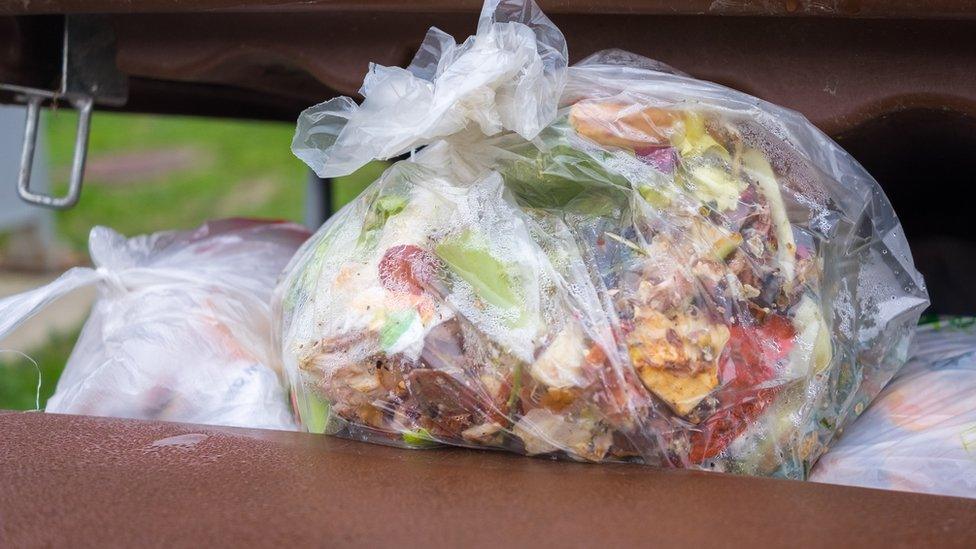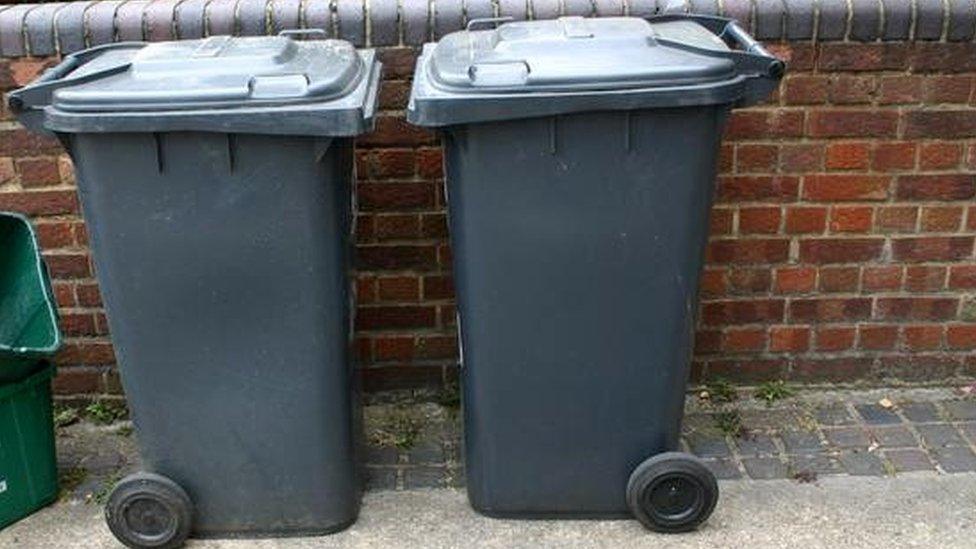Wrap Cymru study shows homes threw out £550m of edible food
- Published

About £550m of edible food was thrown away from homes in Wales in one year alone, latest figures have revealed.
Research by Wrap Cymru, external showed there were 319,000 tonnes of household food waste in 2015.
Of this, 188,000 tonnes could have been eaten but was thrown in the bin.
However, figures showed the amount of household food waste in Wales was reducing compared with the rest of the UK. The Welsh Government said cutting down on food waste was a key priority.
Researchers went through the bins of consenting households and classed items such as egg shells and meat bones as unavoidable waste and things like uncooked chicken and bread as avoidable waste.
The not-for-profit company found the amount being thrown out by each person fell by 12% between 2009 and 2015.
Councils collected 66.2kg of food waste per person in Wales in 2015, compared to 75.4kg six years previously.
Over the same period, household food waste dropped by just 5% per person on average across the UK.
Wrap Cymru said the "significant reduction" in Wales could be due to lower income levels and better separate waste collections.
The study also showed a fall in the amount of edible food being thrown out.
The 188,000 tonnes discarded in 2015 was down from 212,000 in 2009 - a drop of 24,000 tonnes which Wrap Cymru said equates to about £70m of food a year.
For the UK as a whole, 7.3 million tonnes of edible food worth £13bn was thrown away from homes in 2015.
'Long way to go'
Chief executive Marcus Gover said: "Every person in the UK can help reduce food waste.
"Wrap's research found that almost 60% of people believe they personally waste either no food or hardly any, even though people know food waste is an issue."
He added that lessons would be taken from its work in Wales.
Environment Secretary Lesley Griffiths, said: "Significant progress has been made since the figures were first reported in 2007 but as these new results show we still have a long way to go.
"In Wales, cutting down on the amount of food we unnecessarily dispose of is identified as a key priority in our waste strategy, Towards Zero Waste, and contributes to the goals of the Well-being of Future Generations Act."
"It is pleasing to see that in Wales, there is evidence that HHFW [household food waste] levels reduced between 2009 and 2015 by 12% per person."
- Published14 June 2016
